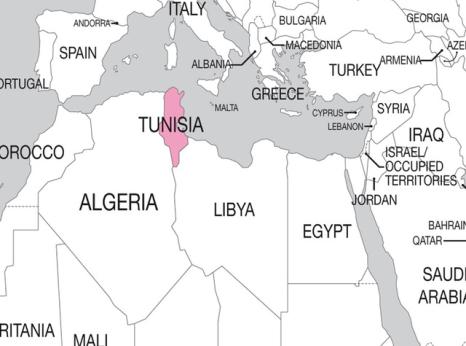Tunisia: Reinstate Revoked Judges And Prosecutors

Since his power grab on 25 July 2021, President Kais Saied has launched repeated attacks on fair trial rights and the independence of the judiciary. On 1 June 2022, President Kais Saied issued Decree-Law 2022-35 giving himself the authority to summarily dismiss judges and prosecutors, based on reports by unspecified “relevant bodies” that they are a threat to “public security” or “the supreme interests of the country” and for acts that “impinge on the reputation, independence or proper functioning of the judiciary”. The same day he dismissed 57 judges whose names were published on the Official Gazette. He announced their dismissal on a videotaped speech citing accusations that included obstructing terrorism-related investigations, financial corruption, “moral corruption” and “adultery” among other misdeeds and later that day the names of 57 dismissed judges and prosecutors appeared in the Official Gazette.
This was not President Saied’s first attack on the judiciary. On 12 February 2022, he adopted Decree-Law 2022-11 in which he dissolved the High Judicial Council, a body of magistrates and legal, financial, tax and accounting experts elected mostly by their peers that was set up after Tunisia’s 2011 revolution to supervise the judiciary and shield it from interference by the executive branch. President Saied replaced the Council with a temporary body, partly appointed by him, and granted himself powers in the same Decree-Law to intervene in the appointment, career tracks and dismissal of judges and prosecutors.
On 14 August 2022, the Tunis Administrative Tribunal issued its emergency decision finding that 49 of the 57 judges and prosecutors arbitrarily dismissed should be reinstated immediately in their jobs. The tribunal's decision in favour of the judges and prosecutors is not subject to appeal and should be enforced immediately according to article 41 of Law n.72-40 on the Administrative Tribunal. Yet, the Ministry of Justice has thus far refused to comply with the decision. Nearly a month after the tribunal's decision, the judges and prosecutors have not been reinstated, in complete disregard of the court ruling and the rule of law.
Subsequent to the Administrative Tribunal’s decision, on 14 August, the Ministry of Justice issued a statement on its Facebook page stating that the judges revoked by Decree-Law 2022-35 on 1 June were being investigated in criminal proceedings. On 20 August, the Ministry of Justice issued a second statement giving more details on the criminal proceedings initiated against them saying the public prosecution seized 109 files related to financial and economic crimes as well as terrorism crimes among others. However, according to one of the lawyers of the 57 judges interviewed by Amnesty International, none of them were officially notified of the judicial proceedings against them and they still have no access to their files in those proceedings. The Ministry of Justice should in any case reinstate the judges, and in the event of credible allegations of wrongdoings that amount to serious misconduct or criminal offences, only initiate disciplinary or judicial proceedings against them in full compliance with international standards.
The United Nations Human Rights Committee, the body of experts who provide the definitive interpretation of the International Covenant on Civil and Political Rights, which is binding on Tunisia, in their clarification of the state obligation to ensure the right to a fair trial (General Comment 32) has stressed: “Judges may be dismissed only on serious grounds of misconduct or incompetence, in accordance with fair procedures ensuring objectivity and impartiality set out in the constitution or the law. The dismissal of judges by the executive, e.g., before the expiry of the term for which they have been appointed, without any specific reasons given to them and without effective judicial protection being available to contest the dismissal is incompatible with the independence of the judiciary.”
According to the Principles and Guidelines on the Right to a Fair trial and Legal Assistance in Africa, adopted by the African Commission on Human and Peoples’ Rights in 2005, “[judicial] officials facing disciplinary, suspension or removal proceedings shall be entitled to guarantees of a fair hearing including the right to be represented by a legal representative of their choice and to an independent review of decisions of disciplinary, suspension or removal proceedings.”